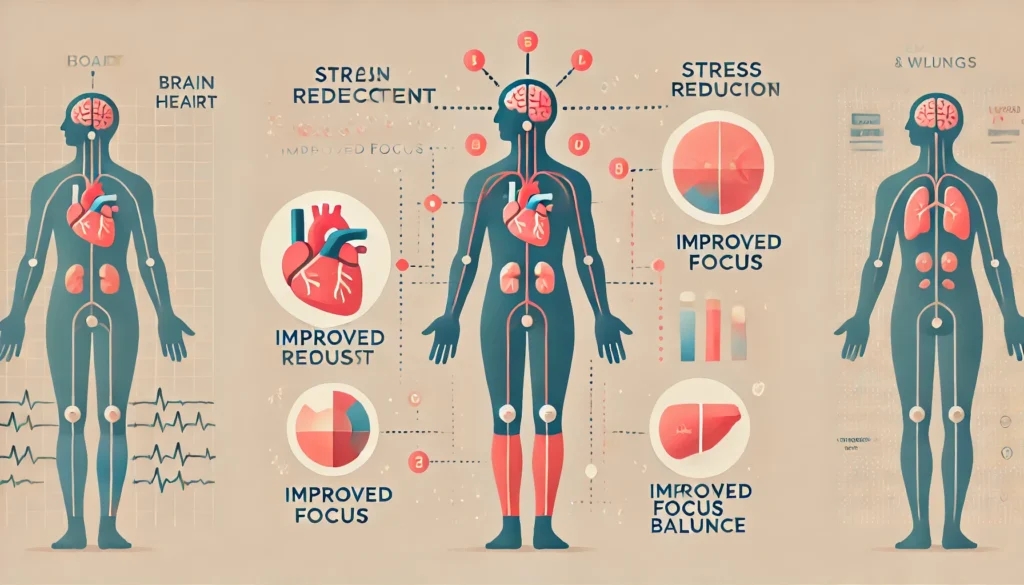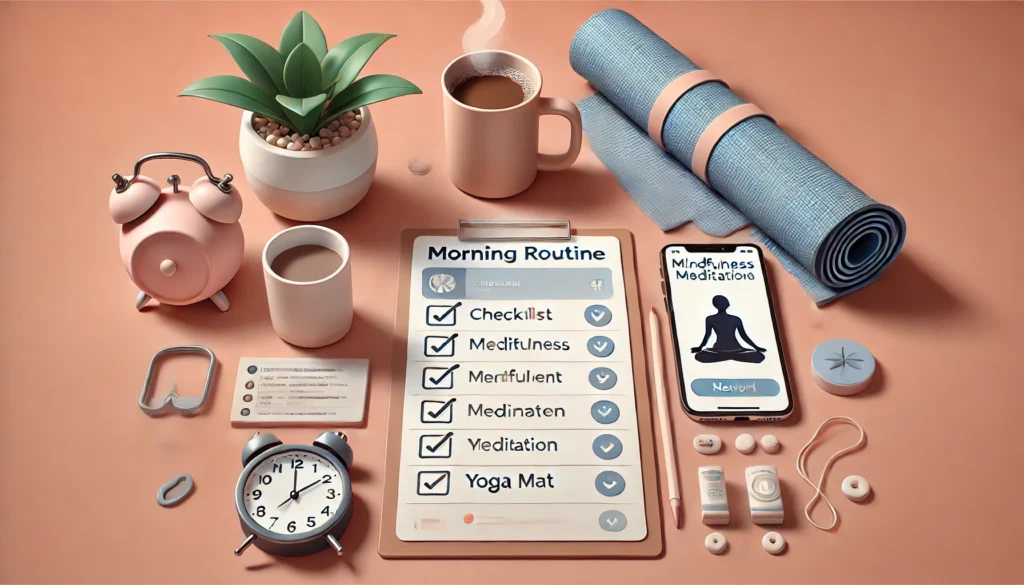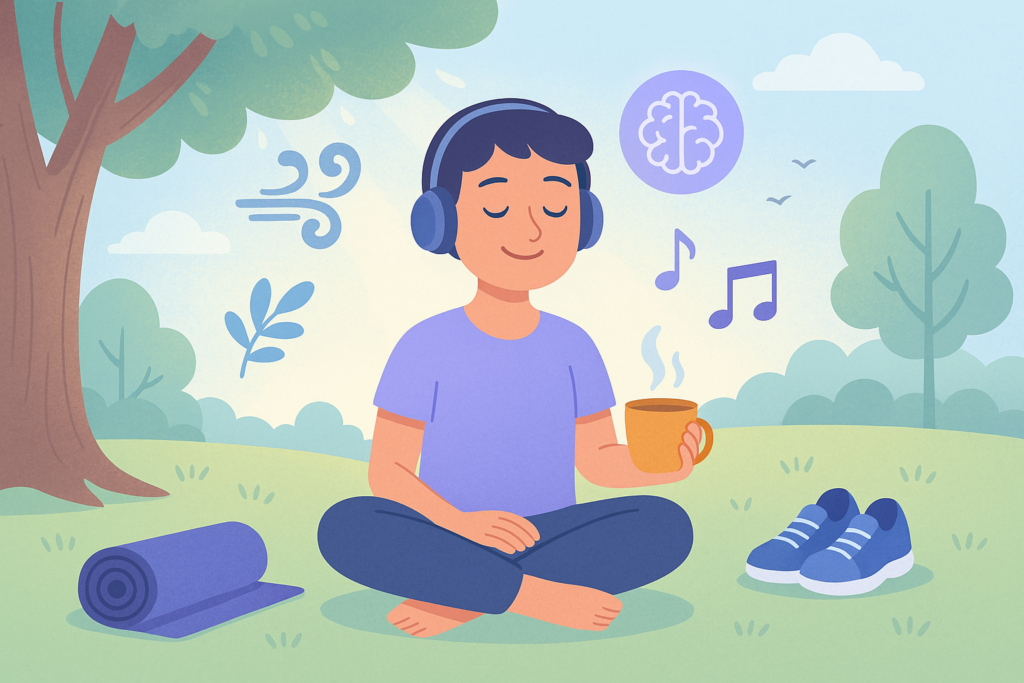A Modern Antidote to a Stressed Society
We live in a world that never stops. From endless notifications to packed schedules, it’s easy to feel overwhelmed, distracted, and mentally exhausted. If you’ve ever found yourself longing for a moment of peace or clarity, you’re not alone. More people are discovering mindfulness meditation as a powerful way to reconnect with themselves and find balance amid chaos.
Far from being a fleeting wellness trend, mindfulness meditation is an evidence-backed approach to improving your mental, emotional, and even physical health. Whether you’re struggling with anxiety, poor sleep, emotional eating, or a lack of focus, mindfulness offers a calm, effective path forward. In this guide, you’ll learn what mindfulness really is, how it works, and how to start reaping the many benefits—one breath at a time.
What Is Mindfulness Meditation? Understanding the Foundations

Mindfulness meditation is the practice of intentionally focusing your attention on the present moment, with a curious and non-judgmental attitude. Instead of trying to shut down your thoughts, it invites you to notice them—just as they are—and return gently to your breath or another anchor of focus.
The practice has ancient roots in Buddhism but has gained modern scientific validation for its remarkable effects on the brain and body. Jon Kabat-Zinn, a pioneer of the Mindfulness-Based Stress Reduction (MBSR) program, defines it simply: “Paying attention in a particular way: on purpose, in the present moment, and non-judgmentally.”
Mindfulness builds awareness, and with awareness comes freedom—freedom from reactivity, racing thoughts, and autopilot living.
How to Start a Mindfulness Meditation Practice (Beginner-Friendly)
You don’t need incense, crystals, or a retreat in Bali to begin. Mindfulness can happen anywhere—even in the space between two breaths.
Try this simple beginner routine:
- Choose a Quiet Space: Sit comfortably with your spine upright.
- Set a Timer: Start with just 5 minutes.
- Focus on Your Breath: Notice the sensation of air moving in and out.
- Expect Distractions: Gently return your attention when your mind wanders.
- Close With Gratitude: End by reflecting on one thing you’re thankful for.
Helpful tools: Apps like Headspace, Calm, and Insight Timer offer beginner-friendly guided meditations.
The Science-Backed Benefits of Mindfulness Meditation

Over 20 years of research has uncovered what ancient practitioners have long known: mindfulness meditation is a powerhouse for health. From reducing stress to enhancing memory and even boosting immunity, its benefits are both wide-ranging and profound.
Mental and Emotional Health Benefits
- Reduces Stress and Anxiety: Mindfulness helps regulate cortisol—the body’s main stress hormone. Studies show it lowers symptoms of anxiety and helps calm the mind during daily pressures.
- Protects Against Depression: Mindfulness-Based Cognitive Therapy (MBCT) is shown to reduce relapse rates in depression by helping people identify and distance themselves from negative thought patterns.
- Improves Emotional Regulation: Functional MRI scans show that mindfulness strengthens the prefrontal cortex (which governs decision-making) while calming the amygdala (the brain’s fear center).
Cognitive Benefits That Boost Daily Life
- Sharpens Focus: A study from UC Santa Barbara found mindfulness improved GRE scores by enhancing working memory and sustained attention.
- Boosts Creativity and Problem Solving: Practicing mindfulness can increase cognitive flexibility—essential for innovative thinking and adaptability.
- Helps Break Negative Habits: By pausing before reacting, mindfulness helps disrupt automatic responses, making it easier to change unwanted behaviors.
Physical Health Benefits
- Lowers Blood Pressure: Regular meditation improves heart rate variability and supports cardiovascular health.
- Strengthens the Immune System: Research indicates it enhances antibody response and helps the body fight inflammation.
- Manages Chronic Pain: Studies show mindfulness alters the way the brain perceives pain, reducing its intensity and emotional toll.
Mindfulness Meditation and Weight Management

Mindfulness isn’t just for your mind—it can transform your body too, especially when it comes to weight control. Unlike crash diets or rigid meal plans, mindfulness addresses the why behind your eating habits.
How Mindfulness Helps You Eat Smarter and Stress Less
- Breaks the Cycle of Emotional Eating: By noticing emotional triggers like boredom or sadness, mindfulness allows you to choose food intentionally—not impulsively.
- Improves Satiety Awareness: Eating slowly and mindfully helps you recognize when you’re full, which can prevent overeating.
- Reduces Sugar Cravings: Lower cortisol levels mean fewer “stress snack” moments.
- Supports Self-Compassion: Mindful eaters tend to be gentler with themselves, which leads to more sustainable lifestyle changes.
Studies published in Obesity Reviews and Appetite journals confirm that mindfulness-based eating practices reduce binge eating and help stabilize weight—especially when paired with moderate physical activity.
Try These Mindful Eating Practices Today
- Pause before your first bite and take three deep breaths.
- Put your fork down between bites and really taste your food.
- Ask yourself mid-meal: “Am I still hungry, or just enjoying the motion?”
How to Make Mindfulness a Lasting Habit

Starting is easy—sticking with it is the challenge. But like any skill, mindfulness strengthens with practice. The more consistently you meditate, the more natural it becomes.
Simple Strategies for Long-Term Success
- Link It to an Existing Routine: Try meditating right after you wake up or before bed.
- Set Gentle Reminders: Use sticky notes or phone alerts with cues like “Take 3 breaths.”
- Start a Journal: Record how you feel before and after meditating to see your progress.
- Join a Group: Community practice sessions can boost motivation.
- Celebrate Small Wins: Even two minutes counts—consistency matters more than perfection.
If you skip a day, don’t be discouraged. Just begin again. Every moment is a new opportunity to return to presence.
Conclusion: Why Mindfulness Meditation Is Worth Your Time
Mindfulness meditation is more than a self-care trend—it’s a lifelong skill that can upgrade your mental clarity, emotional resilience, and physical health. By learning to pause and tune into the present, you unlock a more balanced, intentional way of living.
Whether your goal is to manage stress, sleep better, reduce emotional eating, or simply be more in tune with your life, mindfulness offers a powerful toolkit. You don’t have to be perfect or “zen” to start—all it takes is a few minutes of awareness a day.
Why not begin today? Take a breath. Feel it. That’s where your transformation starts.



